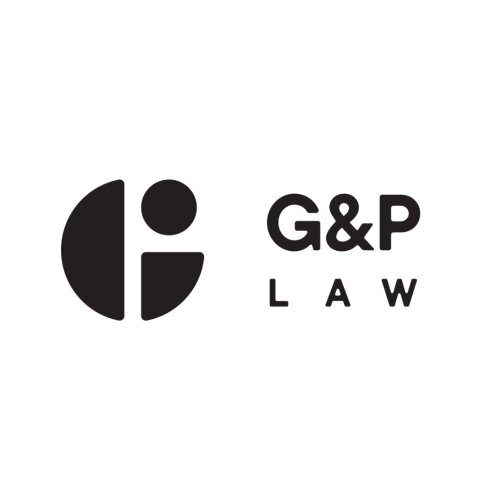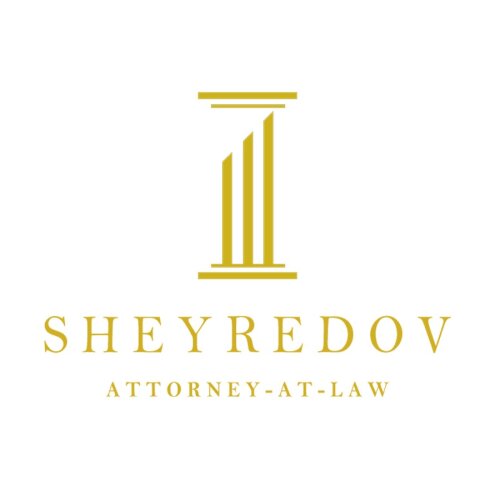Best Public-Private Partnerships (PPP) Lawyers in Bulgaria
Share your needs with us, get contacted by law firms.
Free. Takes 2 min.
Or refine your search by selecting a city:
List of the best lawyers in Bulgaria
About Public-Private Partnerships (PPP) Law in Bulgaria
Public-Private Partnerships (PPP) are collaborative agreements between government entities and private sector companies for the development, financing, operation, and maintenance of public infrastructure and services. In Bulgaria, PPPs are a mechanism to encourage private investment in public projects such as highways, hospitals, water supply systems, waste management, and more. PPP in Bulgaria is governed by a specific legal framework aimed at ensuring transparency, efficiency, and balanced risk-sharing between public authorities and private partners. The regulatory environment is evolving to align with European Union standards and best practices.
Why You May Need a Lawyer
Entering into a PPP arrangement is a complex process that involves negotiation, due diligence, and strict adherence to legal requirements. Legal help is often required in situations such as:
- Drafting and negotiating partnership agreements and contracts
- Understanding the public tender processes and procurement rules
- Reviewing compliance with both national and EU legislation
- Resolving disputes between public and private partners
- Advising on financing and risk allocation mechanisms
- Conducting legal due diligence before project commencement
- Ensuring that the project meets all operational, safety, and environmental standards
- Addressing regulatory approvals and permits
- Navigating challenges arising from contract terminations or amendments
- Representing clients before local courts or arbitration panels
Local Laws Overview
PPPs in Bulgaria operate under several key legislative acts. The primary law is the Public-Private Partnership Act, which defines what constitutes a PPP, the procedures for implementing PPP projects, and the rights and obligations of participants. The Concessions Act and the Public Procurement Act are also highly relevant, particularly for projects involving the use of public assets or services. Bulgarian PPP law sets out clear procedures for project initiation, competitive bidding, contract award, execution, and monitoring. The regulatory framework emphasizes transparency, non-discrimination, and effective public oversight. Additionally, many projects must comply with EU funding rules and competition law.
Frequently Asked Questions
What is a Public-Private Partnership (PPP) in Bulgaria?
A PPP in Bulgaria is a long-term cooperation between a public authority and a private entity for the development, financing, construction, and management of infrastructure or public services, governed by specific legislation and contracts.
What types of projects can be carried out as PPPs in Bulgaria?
Common PPP projects in Bulgaria include transportation infrastructure, utilities, healthcare facilities, waste management systems, public buildings, and urban development.
Which public bodies have the authority to enter into PPP agreements?
Central and local government authorities, municipalities, and certain state-owned enterprises can act as public partners in PPP projects in Bulgaria.
How are PPP contracts awarded in Bulgaria?
PPP contracts are typically awarded through competitive public procurement procedures, ensuring transparency and equal treatment of prospective private partners.
Is EU legislation relevant to PPPs in Bulgaria?
Yes, Bulgaria’s PPP legislation is harmonized with European Union law, and EU rules on public procurement, competition, and state aid apply to relevant projects.
What are the main risks for private partners in Bulgarian PPPs?
Risks include changes in law or policy, construction or operational delays, financial performance shortfalls, regulatory compliance, and possible early termination of the contract.
How are disputes resolved in PPP projects?
Disputes can be resolved through negotiation, mediation, arbitration, or court proceedings, depending on the contract terms and applicable law.
Are financial guarantees or securities required from private partners?
Yes, private entities are usually required to provide financial guarantees or performance bonds to satisfy the public authority about their ability to meet project obligations.
Can foreign companies participate in PPP tenders in Bulgaria?
Yes, foreign and local companies are eligible to participate in PPP tenders, provided they meet the qualification criteria set by the Bulgarian public authority.
How long do PPP projects typically last in Bulgaria?
PPP contracts can range from several years to several decades, depending on the nature of the project, usually covering the full project lifecycle from development to operation.
Additional Resources
If you need more information or support on PPP matters in Bulgaria, you can consult the following authorities and organizations:
- Bulgarian Ministry of Finance - Department for Public-Private Partnerships
- Public Procurement Agency of the Republic of Bulgaria
- Commission for Protection of Competition
- European Bank for Reconstruction and Development - Bulgaria office
- Bulgarian Chamber of Commerce and Industry
- Bulgarian Association of Public-Private Partnerships
Next Steps
If you are considering entering into a PPP in Bulgaria or need advice on an existing project, it is recommended that you consult with a lawyer specializing in PPP transactions. A thorough legal review of your project at an early stage can help identify risks, ensure compliance with complex regulations, and negotiate favorable contract terms. To proceed, gather all relevant documents, outline your objectives, and request an initial consultation with a qualified legal professional. You may contact local or international law firms with experience in Bulgarian PPPs, or reach out to the recommended organizations above for referrals.
Lawzana helps you find the best lawyers and law firms in Bulgaria through a curated and pre-screened list of qualified legal professionals. Our platform offers rankings and detailed profiles of attorneys and law firms, allowing you to compare based on practice areas, including Public-Private Partnerships (PPP), experience, and client feedback.
Each profile includes a description of the firm's areas of practice, client reviews, team members and partners, year of establishment, spoken languages, office locations, contact information, social media presence, and any published articles or resources. Most firms on our platform speak English and are experienced in both local and international legal matters.
Get a quote from top-rated law firms in Bulgaria — quickly, securely, and without unnecessary hassle.
Disclaimer:
The information provided on this page is for general informational purposes only and does not constitute legal advice. While we strive to ensure the accuracy and relevance of the content, legal information may change over time, and interpretations of the law can vary. You should always consult with a qualified legal professional for advice specific to your situation.
We disclaim all liability for actions taken or not taken based on the content of this page. If you believe any information is incorrect or outdated, please contact us, and we will review and update it where appropriate.
Browse public-private partnerships (ppp) law firms by city in Bulgaria
Refine your search by selecting a city.















